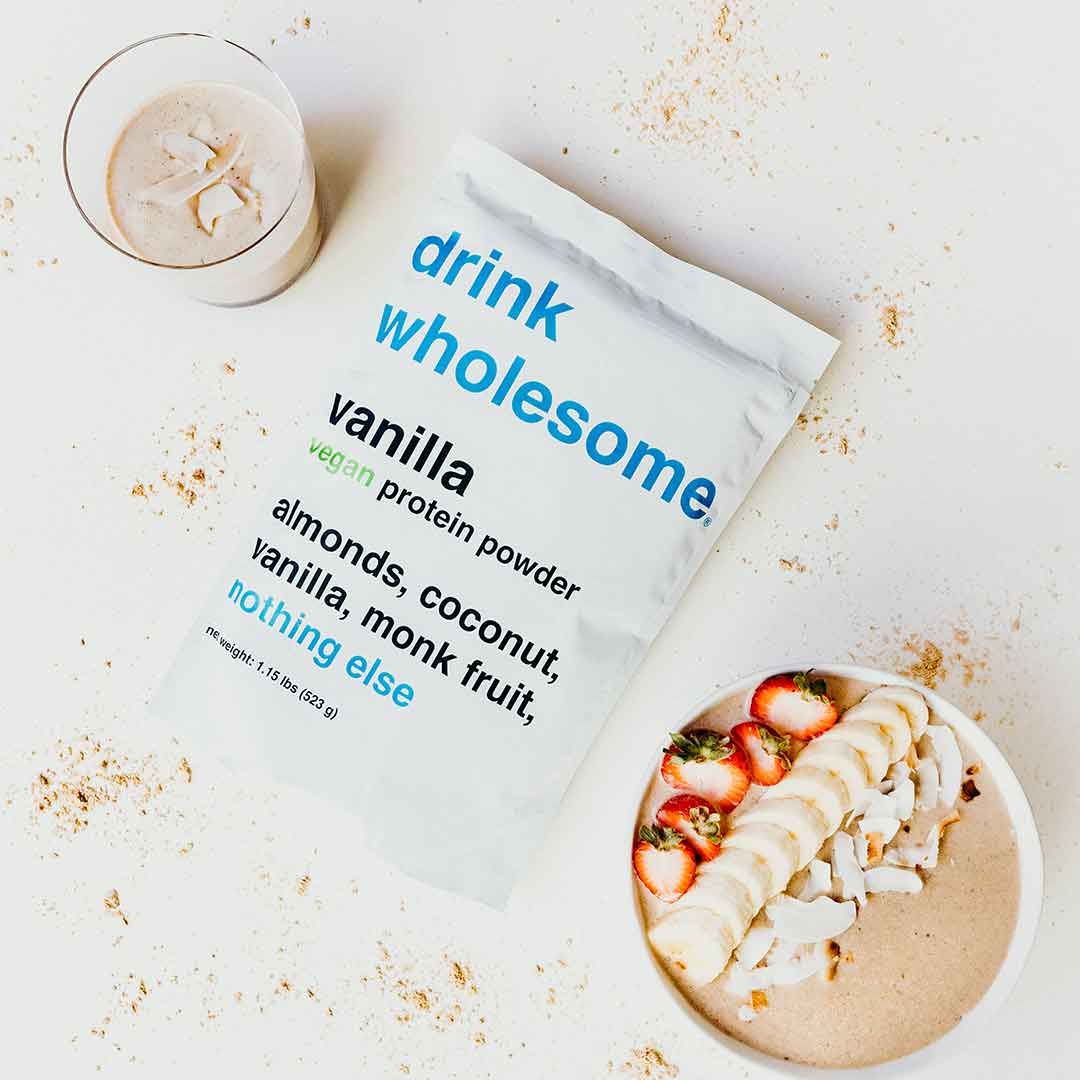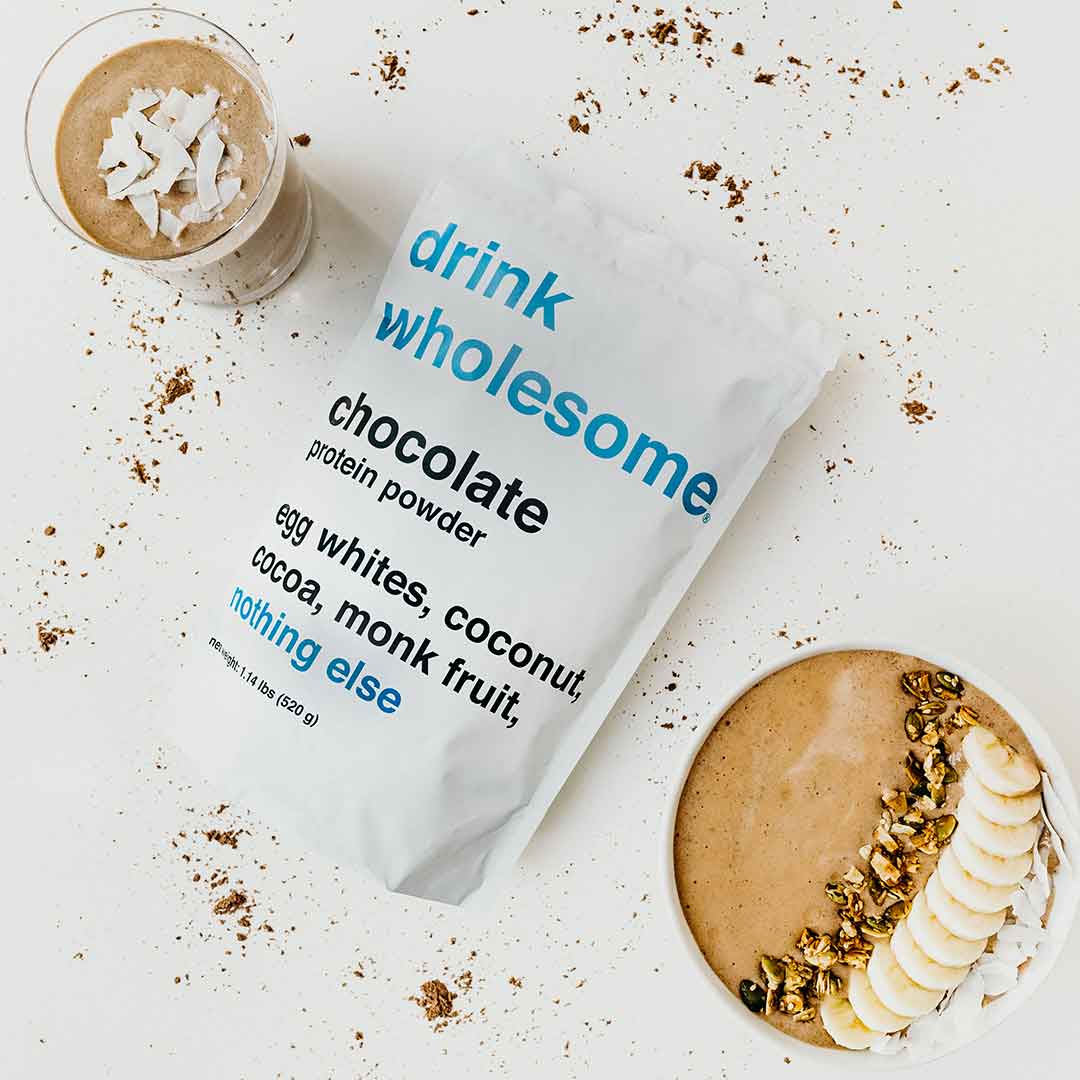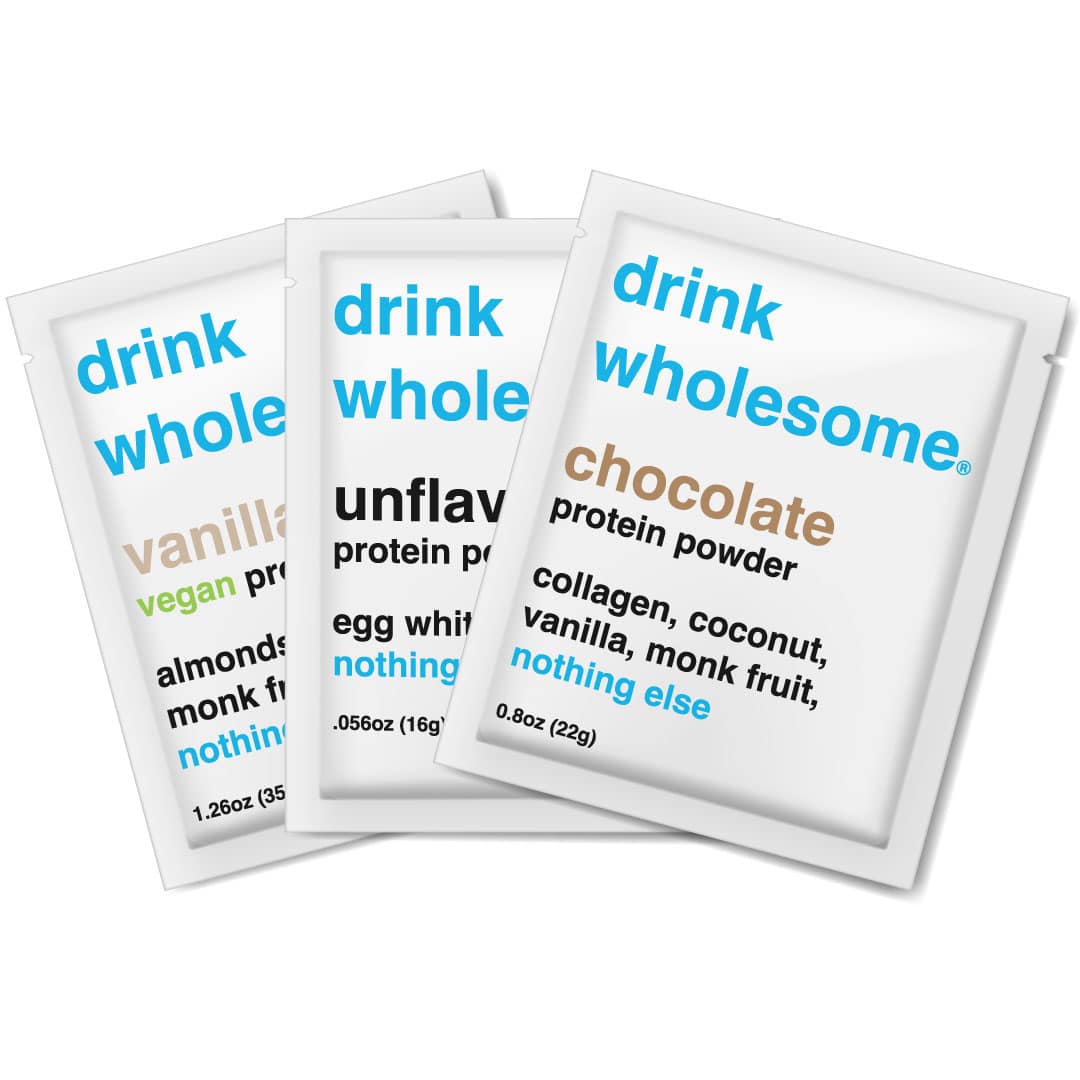Wondering how to reduce bloating from protein shakes?
Wondering how to reduce bloating from protein shakes? Protein bloat is a common side effect that can last anywhere from a few minutes to several days. Learn more about why protein supplements make you bloat, how to avoid protein bloating, and what to do when you are bloated.
How to reduce bloating from protein shakes.
What is bloating?
Bloating occurs when the gastrointestinal (GI) tract is filled with gas. People often describe bloating as feeling full, and it can be accompanied by stomach pain, a visibly distended (swollen) abdomen, excessive gas (flatulence), and frequent burping or belching. The most common cause of bloating is a food intolerance or digestive condition that causes gas to build up in the gut.
How long does bloating last?
One of the most common side effects of protein supplements is bloating. It occurs shortly after drinking a protein shake, and can last anywhere from a few minutes to several days. The duration of your bloating will depend on several factors, including the type of food you consumed, your lifestyle, and the makeup of your gut microbiome.
Bbloating caused by foods high in sugar lasts for only a few hours, whereas bloating caused by foods high in fiber can last for days. Moreover, people who regularly exercise and drink lots of water tend to overcome bloating faster than people who do not. Finally, certain gut conditions, such as irritable bowel syndrome (IBS) and lactose intolerance, can prolong bloating.
Once you drink your protein shake, the duration and severity of your bloating is largely out of your control. This is why it is so important to avoid protein supplements that cause bloating in the first place (more about this later). That said, there are a few tricks that you can try to get rid of bloating from protein shakes.
How to get rid of bloating from protein shakes.
Wondering how to reduce bloating from protein shakes? If you are feeling bloated, here are a few things that you can do to help relieve the discomfort and pass the gas.
1. Exercise. Physical exercise can help you pass gas and reduce bloating.
2. Drink peppermint tea. This easy home remedy also has a long history of reducing bloating and gas. Peppermint relaxes the muscles that allow painful digestive gas to pass.
3. Drink water. Although it might sound counterintuitive, drinking water can actually help reduce bloating as it flushes your gut of things that may be creating gas.
4. Relax. Stress can contribute to bloating. To reduce stress, take a nap, or practice relaxation techniques such as deep breathing or yoga.
5. Use medication. There are several over-the-counter medications that can help to relieve bloating. Two of the most popular are antacids and simethicone. Antacids can help to neutralize stomach acid. Simethicone helps to break down gas bubbles.
These tips can be helpful, but the best practice is always to prevent bloating from happening in the first place. Keep reading to learn more about why exactly protein shakes can make you bloated, and the top ingredients to avoid.
Why do protein shakes make you bloated?
Protein itself is unlikely to make you bloated. The other ingredients in your protein shake, however, are a different story. The average protein supplement is full of added ingredients that are hard to digest, and can cause a host of uncomfortable side effects, including bloating. Continue reading to learn more.
Why drink wholesome?
drink wholesome is additive-free.
One of the reasons why our protein powder does not cause bloating is that we do not use food additives. In striking contrast, the majority of other protein shakes and powders are filled with additives. These added ingredients can cause gastrointestinal (GI) side effects like bloating and gas, especially for those who already struggle with GI issues.
Additives do not resemble real food and are only partially broken down during digestion. As a result, they linger in the gut, setting the stage for one of two\ outcomes: either your intestines absorb excess water, leading to diarrhea, or the additives feed your gut bacteria, which release gas as they eat. An excess of gas in the gut can trigger unwelcome symptoms such as bloating, flatulence, stomach pain, and, in certain cases, constipation.
Here is a list of the most common food additives in protein powder:
acacia gum, acesulfame potassium, artificial flavors, aspartame, carrageenan, cellulose gum, dextrin, dextrose, erythritol, gellan gum, guar gum, gum arabic, inulin, locust bean gum, “natural” flavors, maltodextrin, rice syrup solids, soy lecithin, silica, sucralose, sunflower lecithin, xanthan gum, xylitol
Regularly consuming additives can disturb regulatory pathways in your intestines, considerably heightening the risk of developing inflammatory bowel disease (IBD) and various other systemic inflammatory disorders. Moreover, additives, particularly artificial sweeteners, can disrupt your gut microbiome – the collection of microorganisms living in your gut. This, in turn, can impair your ability to digest and absorb food, as well as cause widespread inflammation.
the alternative:
Protein Matrix Comprised of (Whey Protein Concentrate, Whey Protein Isolate, Calcium Caseinate, Micellar Casein, Milk Protein Isolate, Egg Albumen, Glutamine Peptides), Polydextrose, Sunflower Creamer (Sunflower Oil, Corn Syrup Solids, Sodium Caseinate, Mono- and Diglycerides, Dipotassium Phosphate, Tricalcium Phosphate, Soy Lecithin, Tocopherols), Natural and Artificial Flavor, MCT Powder (Medium Chain Triglycerides, Nonfat Dry Milk, Disodium Phosphate, Silicon Dioxide), Lecithin, Cellulose Gum, Salt, Yellow 5, Sucralose, Acesulfame Potassium, Papain, Bromelain
drink wholesome is dairy-free.
Another reason why our protein powder does not make you bloated is that we do not use dairy-based proteins. Many other protein supplements contain whey and/or casein protein, which are byproducts of cheese and dairy production. These dairy-based protein sources are hard to digest, especially for the one-third of adults with lactose intolerance. Individuals with lactose intolerance cannot fully digest lactose, the sugar in dairy, and experience side effects like bloating when they consume whey or casein.
drink wholesome is made with real foods.
A final reason why our protein powder does not cause bloating is that we do not use protein concentrates or isolates. Nearly all other protein powders are made with one or both of these protein sources, which are essentially stripped-down versions of real food. Instead of being listed as “peas” or “whey,” they appear as “pea protein” or “whey protein.”
Manufacturing protein concentrates and isolates involves extensive mechanical and chemical processing. In certain instances, chemical solvents, such as hexane, are utilized to extract the protein from its natural source. Consequently, the protein shake you consume barely resembles real, whole food.
Your digestive system is expertly designed to handle minimally-processed or unprocessed real foods, not artificial or contrived substitutes. Eating anything other than real food can result in undesirable side effects. While ongoing research continues to explore the long-term effects of consuming processed ingredients like protein isolates, emerging evidence hints at their potential to disrupt the gut microbiome.
Beyond its critical role in digestion, the gut microbiome acts as a barrier against harmful pathogens, contributes to the education of the immune system, and influences various physiological processes. Disruptions to the gut microbiome have been strongly associated with the development of numerous chronic illnesses. Considering this connection, I strongly recommend avoiding protein powders made with protein concentrates and isolates. Instead, prioritize real, natural protein sources to protect your gut health and overall well-being.
Instead of using protein concentrates or isolates, we make protein powders with egg whites and almonds. Egg whites undergo a simple process of pasteurization and drying. Almonds are just roasted, pressed (to remove some oil), and ground. These ingredients, left in their more or less their natural state, yield protein powders that are exceptionally gentle on the digestive system. Unlike protein isolates and concentrates, real foods also contain enzymes and natural digestive aids that help with digestion.
For individuals without allergies or sensitivities to eggs, egg white protein is the best option for promoting gut health. Due to their low fiber and FODMAP content, as well as their alkalinity, egg whites are easily digested. Positive feedback from our customers consistently highlights fewer digestive issues when consuming our egg white protein powder compared to other protein supplements.
For those unable to consume eggs, our vegan almond protein powder serves as a superb alternative. Almonds boast prebiotic effects, nourishing the diversity and composition of the gut microbiome. They also support healthy and regular bowel movements. In conclusion, our protein powders are minimally-processed to support your digestive health.
“I like this new flavor and for a vegan protein powder it’s exceptional. Chocolately and not too sweet. No bloating or gas either.” – Davis
Read more reviews or take the quiz.
Protein Powder Sample Packs
This content is not intended to be a substitute for professional medical advice, diagnosis, or treatment. drink wholesome is not intended to diagnose, treat, cure or prevent any disease.









